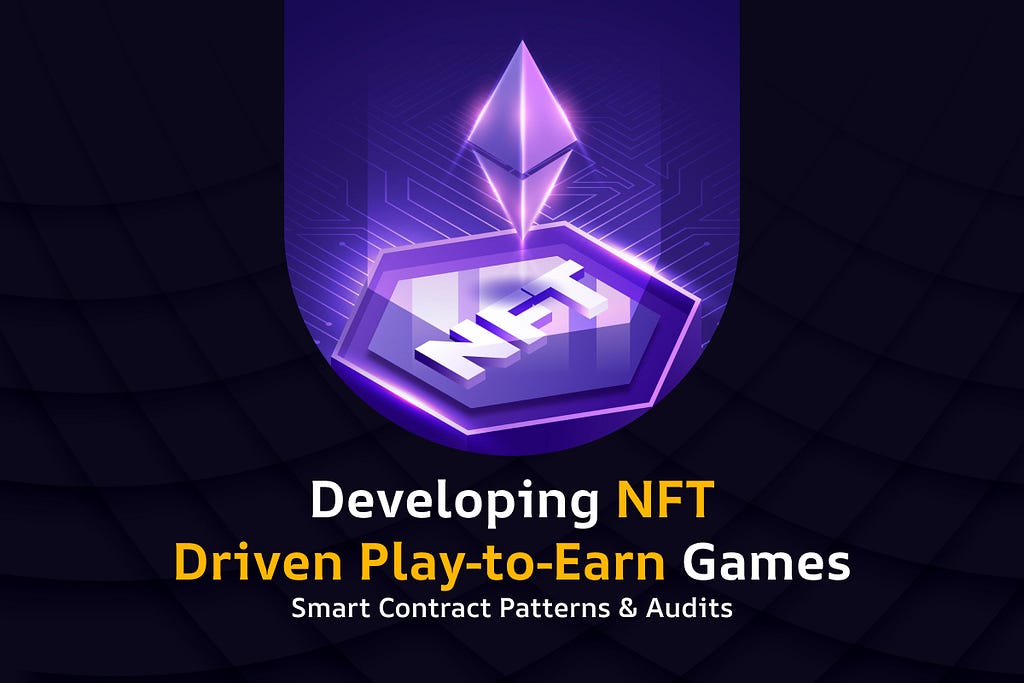
NFT-driven play-to-earn (P2E) games represent a significant innovation in the gaming and blockchain space, enabling players to earn real-world value through gameplay. These games rely heavily on blockchain technology and smart contracts to guarantee transparency, trust, and automation in gaming economies and asset ownership.
What Are NFT-Driven Play-to-Earn Games?
NFT-driven P2E games combine traditional gameplay mechanics with blockchain technology, where unique digital assets on the blockchain represent in-game items such as characters, weapons, land, or achievements. Players truly own these assets, with the ability to trade, sell, or use them across supported platforms. This ownership model opens up new revenue streams and economic activity for both developers and players.
At the core of these games are smart contracts — self-executing programs on the blockchain that automatically enforce game rules, transactions, and asset exchanges. Their reliability directly impacts game fairness, security, and performance. Developers providing NFT Development Services focus on creating efficient smart contracts that manage in-game NFTs and currencies while maintaining transparency and trust.
Key Smart Contract Patterns in P2E NFT Games
Smart contracts in NFT games follow certain patterns to handle common gaming functions securely and efficiently:
- Minting Contracts: These create new NFTs representing in-game assets. Contracts control the rules for how many NFTs can be minted, ensuring scarcity which adds value.
- Ownership and Transfer: These patterns establish who owns what NFTs and enable players to transfer ownership safely while updating the blockchain state.
- Marketplace Contracts: Facilitate buying, selling, and auctioning NFTs, managing bids and secure transfers of funds.
- Reward and Staking Contracts: Manage in-game rewards, such as tokens earned for gameplay achievements or staking mechanics where players lock assets to earn benefits.
- Game Logic Contracts: Automate game rules like battle outcomes, NFT breeding, or land resource generation within the blockchain environment.
Designing these contracts requires balancing complexity with gas efficiency, ensuring that interactions are cost-effective for players.
Importance of Smart Contract Auditing Services
Given that smart contracts are immutable once deployed, any bugs or vulnerabilities can lead to irreversible financial losses or exploits. This is why smart contract auditing services are essential before launching your NFT game. These audits involve:
- Thorough manual code review to detect logic flaws or hidden vulnerabilities.
- Automated tools scanning for known security weaknesses.
- Testing contract behavior in simulated environments.
- Validating that the code follows the intended business logic without exploitable loopholes.
- Providing detailed reports and recommendations for fixes.
In recent years, compromised smart contracts have caused millions in losses, highlighting the importance of these audits. Businesses should only engage certified auditors to verify that their NFT game contracts meet high security and quality standards.
Developing NFT-Driven P2E Games: A Step-by-Step Approach
- Concept Definition & Planning: Outline game goals, core mechanics, NFT use cases, and revenue strategies.
- Blockchain Selection: Choose an appropriate blockchain (Ethereum, Solana, Binance Smart Chain, etc.) balancing security, speed, and costs.
- Smart Contract Development: Build smart contracts following the required patterns to manage NFTs, transactions, rewards, and marketplaces.
- NFT Asset Creation: Design and mint unique NFTs representing characters, items, or virtual property.
- Game Development: Code game mechanics integrating with blockchain smart contracts, providing a smooth user experience.
- Security Audits: Conduct rigorous smart contract auditing services to detect and correct issues.
- Testing & Launch: Engage in thorough testing phases to check performance, security, and usability before releasing your game.
- Post-Launch Support: Monitor game economy, update contracts if possible with upgradeable patterns, and maintain security.
Challenges and Considerations for Businesses
Building NFT-driven P2E games can be complex, with hurdles such as scalability, regulatory compliance, market fluctuation, player retention, and the technical demands of blockchain. Partnerships with experienced NFT Development Services providers can help navigate these challenges effectively.
Future Trends in NFT Gaming
The NFT P2E space continues to evolve with trends including cross-platform asset interoperability, integration with metaverse projects, and new economic models like play-to-earn-to-own. Understanding these trends will help businesses keep their games competitive and relevant.
If you are ready to explore the potential of NFT-driven play-to-earn games, partnering with the right development and auditing experts is crucial. Codezeros offers comprehensive NFT Development Services, including secure smart contract development and thorough smart contract auditing services. Get in touch with Codezeros today to start building your next successful NFT game.
Frequently Asked Questions (FAQs)
Q1: What makes NFT games different from traditional games?
NFT games provide true ownership of in-game assets via blockchain, allowing players to trade and monetize items in new ways not possible in traditional games.
Q2: Why are smart contracts important in NFT P2E games?
Smart contracts automate and enforce game rules, asset ownership, and transactions securely without intermediaries, ensuring fairness and transparency.
Q3: What risks do smart contracts pose if not audited?
Vulnerabilities in smart contracts can lead to hacks, asset theft, or unintended behavior causing financial loss and damaging player trust.
Q4: Which blockchains are best for NFT P2E games?
Ethereum, Solana, and Binance Smart Chain are popular choices, each offering different trade-offs in cost, speed, and ecosystem support.
Q5: How can businesses ensure game economy sustainability?
By carefully designing tokenomics, limiting NFT supply, and continuously monitoring player activity to prevent inflation and maintain value.
A message from our Founder
Hey, Sunil here. I wanted to take a moment to thank you for reading until the end and for being a part of this community.
Did you know that our team run these publications as a volunteer effort to over 3.5m monthly readers? We don’t receive any funding, we do this to support the community. ❤️
If you want to show some love, please take a moment to follow me on LinkedIn, TikTok, Instagram. You can also subscribe to our weekly newsletter.
And before you go, don’t forget to clap and follow the writer️!
Developing NFT-Driven Play-to-Earn Games: Smart Contract Patterns & Audits was originally published in Stackademic on Medium, where people are continuing the conversation by highlighting and responding to this story.








